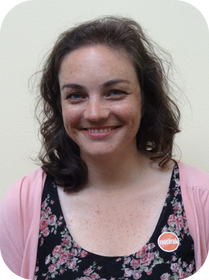
Name: Alana Willhite
Position: School Psychologist

I had been working at a residential treatment program and special education school for students with severe emotional and behavioral challenges for a few years when I decided I was ready to go to grad school for something related to special education. I chose school psychology without ever talking to an actual school psychologist, or fully understanding what a school psychologist does (definitely not a recommended way to go about choosing your future profession, but luckily it has worked out for me). After grad school at the University of Washington, I worked at a private autism inclusion school for a year and then for Seattle Public Schools for two years, before moving to the Bay Area and joining All-In! in 2014. After learning about the Unconditional Education model I was excited to join a program that emphasized focusing on pre special education referral interventions and supporting students and their families in all of their needs.
Fun Fact
I love to read pretty much everything and make it through a book or two a week. If you ever need a book recommendation, let me know!
What does your average day look like?
One of things I enjoy about being a school psychologist is that there isn’t a typical day. I spend time meeting 1:1 with students for assessment, which includes administering cognitive and processing tests and interviewing them around their feelings about school. I conduct play-based autism assessments with students. I observe students in class and consult with parents and school staff around behavior and learning challenges. I run social skills and counseling groups for students. I spend a lot of my time writing reports that I work hard trying to ensure are both useful to parents and teachers and that are also legally defensible. I attend IEP meetings where I explain the results of my evaluation and determine special education eligibility.
Why do you do this work?
Being a school psychologist in some ways feels like being a detective. I enjoy working to try and figure out what might be causing a student to struggle in school, and how we can use that information to figure out how we can best support that student. I get to meet so many students and families and every case is different and challenging in it's own way. I love learning about assessment and special education law and am always looking for ways that we can improve the special education process.
What hope do you have for the future of All-In?
I would love to see All-In! continue to develop our ability to support students with autism, intellectual disabilities, and other less common and more profound educational needs.
 RSS Feed
RSS Feed